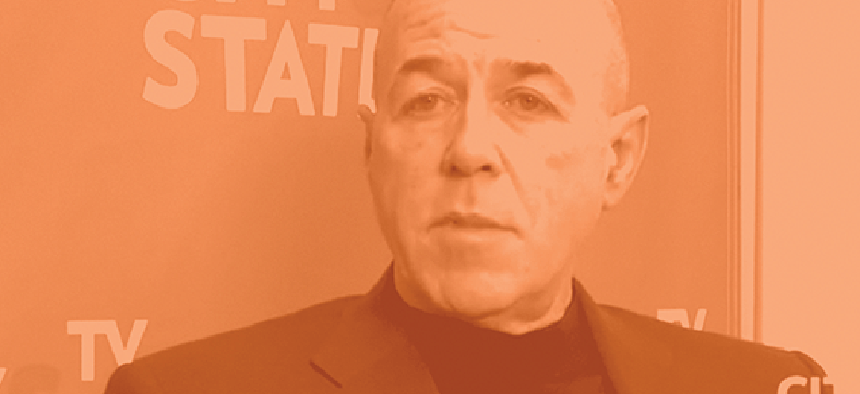A View From the Inside: Bernie Kerik

In December of 2004, President George W. Bush nominated Bernard Kerik, a former NYPD commissioner, to be his secretary of homeland security. A week later Kerik would withdraw his name from consideration after a host of troubling revelations about his professional and personal life surfaced. That abrupt turnaround in his public image was the start of a downward spiral that would climax in Kerik pleading guilty in 2009 to eight felonies.
Released from incarceration in 2013, Kerik, who was also once New York City’s police commissioner, has now become an advocate for prison reform in the United States. He spoke out about his experiences and advocacy in an interview with City & State TV.
The following transcript is edited for space and clarity.
C&S: What are the foremost problems you see with the prison system?
BK: I think first and foremost, the mandatory minimums and sentencing guidelines are draconian. We are taking first-time nonviolent drug offenders [and] putting them in prison for years — in some cases 10 to 15 years — they get no real education or rehabilitation when they are in the system.
And then we release them, and by some delusion we believe that is going to benefit society, when in fact it’s a detriment. It is an enormous detriment to society. It’s an enormous cost to society. And it does not in anyway help recidivism, because these young men and women go back into society as a convicted felon. They have nowhere to go; they have no job, no real job—they can’t get a job because they are now a felon, and so they have to revert back to crime, some criminal activity.
C&S: From a philosophical standpoint, isn’t the term “corrections” itself a misnomer because our prison system no longer aims to rehabilitate prisoners but merely to punish them?
BK: That’s exactly where the problem is. I believed that in the federal prison system we paid taxes for two things: incarcerating bad people and rehabilitating people. I have come to find out that we pay taxes for one thing: to warehouse human beings. That’s what we are paying taxes for. Some of them may be bad people, but I promise you there [are] a lot of real good people that made mistakes that are sitting in prison where they don’t need to be.
They can be punished by alternative sentences. They can be punished with more severe fines or penalties. They can be punished with community service. I would much rather give somebody community service, if we could—give them an alternative sentence, have them paying taxes, taking care of their families, looking after their children and creating better relationships with their children. You cannot parent a child in absentia; you can’t do it.
We put people in prison for some of these low-level first-time nonviolent offenses, we separate them from their children, and then we wonder why their children wind up in prison behind them. The system as it stands today contradicts its own mission statement. We are not rehabilitating, in reality. Anybody that comes out of the federal prison system today and we can say that person really was rehabilitated—they did it on their own.
To view the full interview, visit www.CityandStateNY.com.
